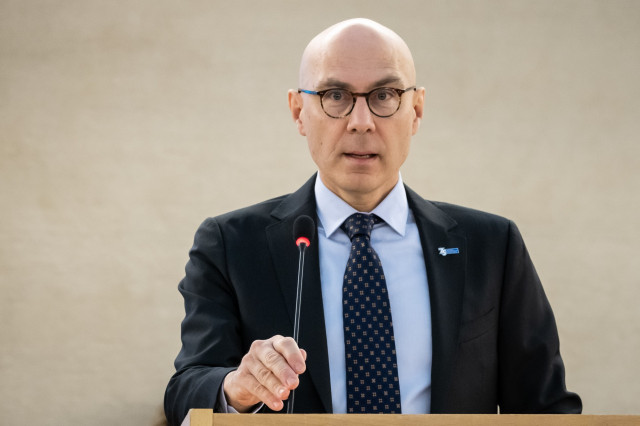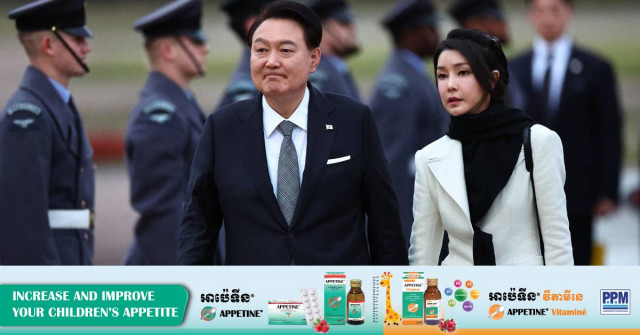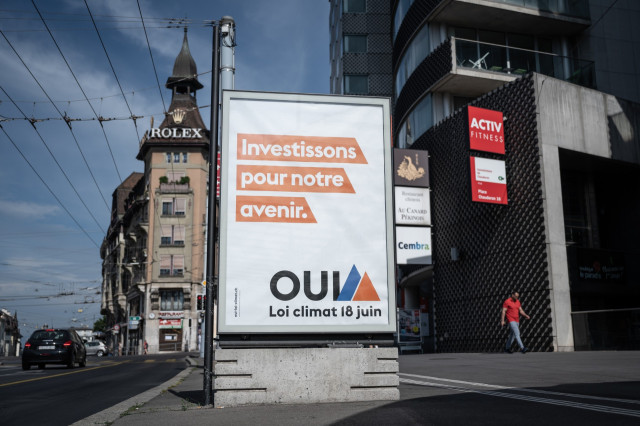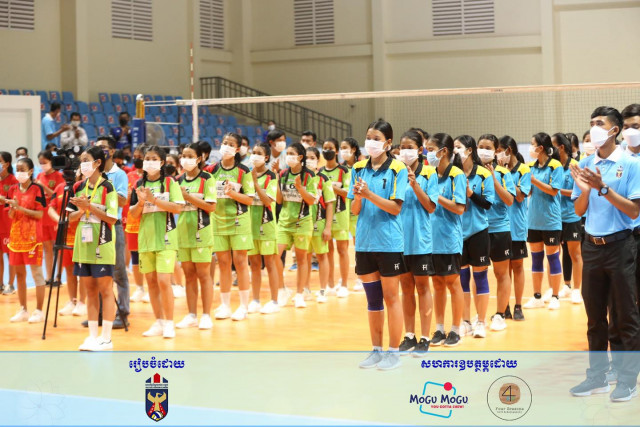UN Rights Chief Concerned Over Limited Political Space, Cambodia Contests

- By Phoung Vantha
- June 19, 2023 2:15 PM
PHNOM PENH – Cambodia’s Permanent Mission to the United Nations has spoken out against critical comments about next month’s general election expressed by the U.N. High Commissioner for Human Rights.
Rights Chief Volker Türk urged Cambodia’s government to act swiftly to enable and protect a conducive environment for free and fair elections. In a June 16 statement, he said he was deeply concerned by the curtailing of civic space ahead of the poll.
“Ahead of the election, there must be an open and pluralistic environment that guarantees the rights to freedom of expression and opinion, and freedom of assembly and association,” Türk said. “These elements lie at the core of open and free societies as envisaged by the Universal Declaration of Human Rights.”
“The National Election Commission (NEC) earlier this year disqualified the Candlelight Party (CLP) and Khmer United Great Nation Party from running for election while long prison sentences had been handed down against other opposition figures. Under international law, all citizens have an equal right to stand for election, a right that may only be subjected to restrictions that are objective, reasonable and non-discriminatory,” the UN High Commissioner for Human Rights added in the statement.
He went on to comment on judicial cases brought against opposition figures, pointing out that “heavy fines have been imposed on other political actors, such as Son Chhay the vice-president of CLP, who was ordered to pay over $1 million in fines and compensation to the NEC and the ruling Cambodian People’s Party for defamation.”
Such comments from the U.N. Human Rights High Commissioner were coldly received by Cambodia’s Geneva-based mission to the United Nations.
In response, it condemned in a June 18 statement what it called Türk’s “selective and highly politicized remarks” which disregard the real picture of the civil-political space in the run-up to the vote.
In a 4-point list, the mission recalled “Cambodia’s commitment to a multiparty democracy” stressing that “18 political parties have been registered to the upcoming elections in July,” which is seen as “a true indication of the pluralistic and democratic nature of the country.”
“The absence of two political parties from the electoral process due to their non-compliance with the law does not negate in any way the liberal, pluralistic and democratic nature of the Kingdom,” the mission said.
The argument of a vivid democracy in Cambodia was already brought up ahead of the 2018’s general elections when the NEC hailed Cambodia’s political pluralism after 20 parties had registered for the vote.
But following the dissolution of the Cambodian National Rescue Party (CNRP), Cambodia’s main opposition party at that time, Hun Sen’s Cambodian People’s Party (CPP) won all the seats at the National Assembly.
Similarly, out of the 18 political parties registered for this year’s July election, only the Funcinpec and the Khmer National United Party have a small base of political supporters, after they won around 1 percent of the votes during the 2022 commune elections.
Barring the Candlelight Party from participating in the 2023 general election necessarily means the CPP will run unopposed.
Concerns over new election law amendments
The statement from the Cambodian mission to the U.N. also pointed out that “civil societies are indisputably free and open, attested by, inter alia, the constructive vibrant roles of 6,000 NGOs and nearly 2,000 media outlets operating freely without censorship.”
Nevertheless, the country lost 5 points in the Reporters Sans Frontieres’ 2023 World Press Freedom Index, ranking 147 out of 180, following the removal of Voice of Democracy’s media license in February.
In his statement, U.N. High Commissioner for Human Rights Volker Türk also raised concerns over the upcoming amendments to the election laws, that will limit the right to stand as a candidate in future elections.
“This week, the Prime Minister said the Government would amend the election law to bar anyone who boycotts the vote, or encourages others to do so, from running as a candidate in future elections,” the statement said.
“Such an amendment, if enacted, would constitute an overbroad restriction on the right to freedom of expression and a breach of the right of all citizens to stand for election, guaranteed by the Constitution of Cambodia and international human rights instruments.”
Cambodia’s mission to the U.N. claimed that Türk’s stance on these amendments is prejudicial.
“The potential amendment is in full compliance with Article 34 (New) of the Constitution which stipulates that ‘Provisions restricting the right to vote and the right to stand as candidates of the election shall be determined by law’,” Cambodia’s release states.
Announced on June 13 by the prime minister, the amendments are expected to be accepted this week by the National Assembly.
While, at the end of his statement, Türk urged “Cambodia’s leadership to change course now to enable a vibrant civil society, a space for open debate and respect for human rights,” the country’s representation in Geneva called on the high commissioner for Human Rights to “respect […] the sovereignty and domestic jurisdiction of States and the well-established principles of non-interference in internal affairs of States as prescribed by the U.N. Charter.”















